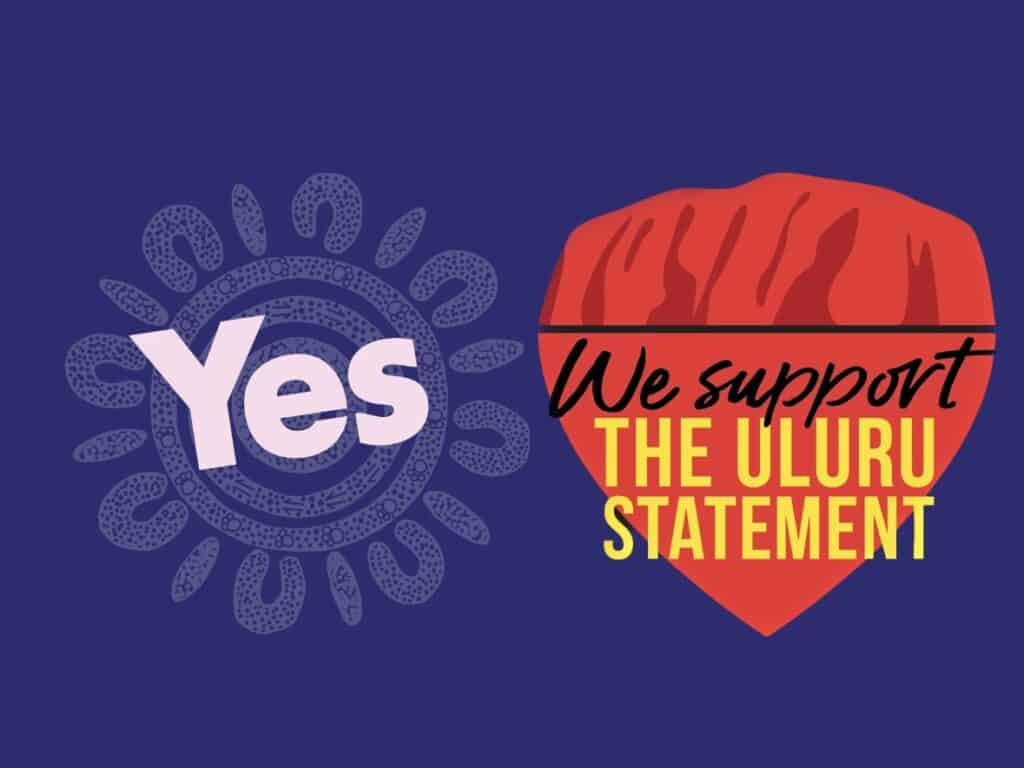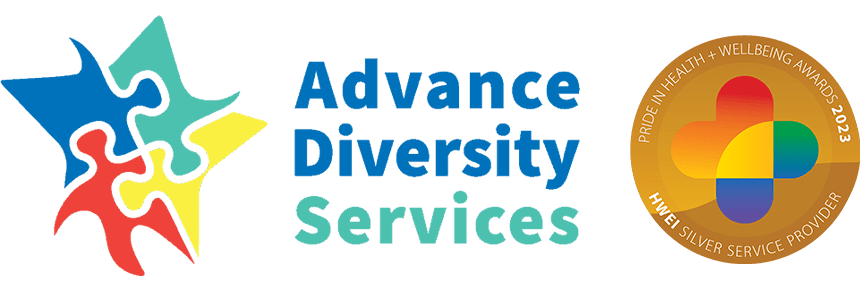Advance Diversity Services (ADS) is playing a pivotal role in equipping community service providers and their clients in the region to understand the upcoming referendum about Aboriginal and Torres Strait Islander Voice to Parliament.
‘With such a high proportion of people from Culturally and Linguistically Diverse (CALD) backgrounds in the St George and Sutherland region, we’re keen to ensure people really understand what the Voice to Parliament involves and how they can participate knowledgeably in the referendum,’ said Manager, Emerging Communities, Settlement and Community Services, Magdaline Shenton-Kaleido.
‘A powerful first step is to acquaint people with the history of the Uluru Statement from the Heart and its key message to ask Australians to support meaningful constitutional recognition through providing a First Nations’ voice in parliament.’
Ms Shenton-Kaleido said she and ADS Community Development Officer Shyama Sri had attended Walking Together training run by Youth Off the Streets in March.
‘The training aims to give people from all cultural backgrounds the tools they need to walk with First Nations Australians in unity and it boosted our capacity and confidence,’ she said.
‘Next we invited Bridget Cama to speak about the Uluru statement and the referendum at a full ADS team meeting on April 4.
‘Ms Cama is a Wiradjuri Pasifika Fijian woman, Co-Chair of the Uluru Youth Dialogue, an associate of the Indigenous Law Centre at UNSW and legal support to the Uluru Dialogue.
‘Bridget’s session with staff was so informative and engaging the Leadership team approached the ADS board to endorse the We Support the Uluru Statement tag, in all our email signatures.’
The Uluru Statement from the Heart was a grassroots community process – the culmination of 13 regional dialogues held across Australia on the question of constitutional recognition for Aboriginal and Torres Strait Islander peoples, and issued to the Australian public on May 25, 2017. It is available in 82 different languages.
ADS is working with The Uluru Dialogue to get a variety of resources and information about the referendum translated into international languages – with Greek, Macedonian, Italian, Spanish, Arabic, Maltese, Cantonese and Mandarin high on the list.
ADS also hopes to produce a simple Uluru Dialogue presentation which incorporates the referendum question to be voted on, and then to have it translated, which will mean the ADS Aged Care and Settlement teams can use it when talking with their community groups.
Another way ADS has opened up discussion about Indigenous issues and cultural knowledge has been through holding Indigenous Bush Tucker Tours for new arrivals on Harmony Day in March and during Refugee Week in June.
On March 22, guided by the Sutherland Shire Council’s Aboriginal Heritage Officer, clients from ADS and Gymea Aid and Information Service walked through the Joseph Banks Native Plants Reserve in Kareela and were introduced to Aboriginal food and different medicinal plants. A second walk, on June 23, was booked to capacity.
‘These tours give our new arrivals and our other clients insight into the oldest continuing living culture in the world,’ said Ms Shenton-Kaleido. ‘They also offer a glimpse of the richness and diversity of Aboriginal and Torres Strait Islander cultures in Australia, which is something we should all take pride in.’

Forum to equip community sector workers
ADS is part of the Working Together Forum, which is offering a free workshop at TAFE NSW St George on June 29 to help equip sector workers with information about the referendum process and how to incorporate this information into their service delivery.
‘We’ve invited Bridget Cama to present and also to facilitate a short professional development activity for the audience of service providers based in the Sutherland Shire and St George areas working with CALD and newly arrived migrants who are eligible to vote,’ said Ms Shenton-Kaleido.
‘We organised this forum to help people inform themselves about the Uluru Statement and what it asks of our nation and also to create respectful spaces for talking about the impact a First Nations Voice will make.’
Ms Shenton-Kaleido said some important facts about the referendum and the Voice include:
- The question to be put to the Australian people at the 2023 referendum will be: ‘A Proposed Law: to alter the Constitution to recognise the First Peoples of Australia by establishing an Aboriginal and Torres Strait Islander Voice. Do you approve this proposed alteration?’
- The referendum requires a majority of votes in a majority of Australian states to succeed. If the vote is successful, Parliament will then design the Voice via legislation.
- We are not voting on a particular model – we are voting on the principle that Indigenous Australians should be able to provide advice to the government.
- The Parliament will decide the structure and composition after a successful referendum. This is normal procedure for referendums.
- A constitutionally enshrined Aboriginal and Torres Strait Islander Voice could be re-shaped but not abolished.
Ms Shenton-Kaleido also said, ‘The Uluru Statement is an invitation given by First Nations people to the people of Australia and a chance for our nation to confront the truth of our past and present, and make way for justice.
‘A constitutionally enshrined Voice will shape and guide the relationship between First and Second peoples in this country by enabling people to have a say in the decisions that impact our communities.’
Want to know more about the referendum and Uluru Statement the Heart?
See the statement here https://ulurustatement.org/the-statement/
See https://yes23.com.au/
Watch these videos
